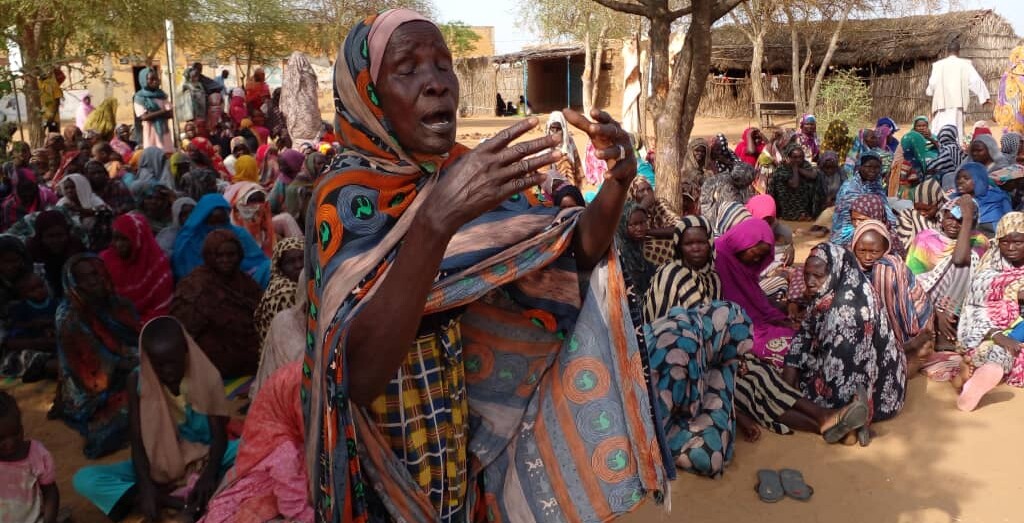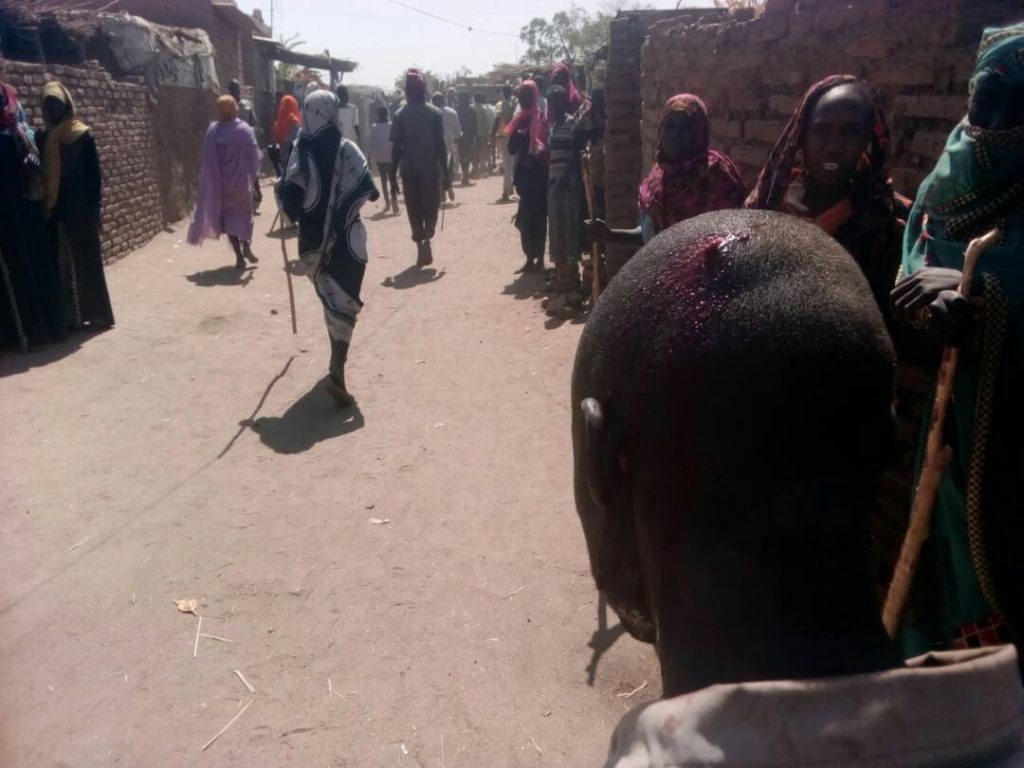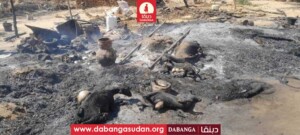MSF: Darfur displaced in ‘catastrophic’ humanitarian conditions

People gather at the centre of the El Salam displaced camp (also known as Abuja camp) near El Fasher in North Darfur, August 2023 (File photo: RD)
Zamzam camp in North Darfur is in a “catastrophic situation,” reports Médecins Sans Frontières (MSF). The security and humanitarian situation in Central Darfur “continues to deteriorate.” The Camps Administration for Displaced People in South Darfur has expressed great concern about “the catastrophic and terrible humanitarian situation” of displaced and refugees.
MSF reported yesterday that “all emergency thresholds for malnutrition have been reached” in Zamzam camp. The camp “requires an urgent humanitarian response as an estimated one child is dying every two hours”.
The press release noted the high mortality rates and severe living conditions in the camp. “The total number of deaths in the camp per day was also cause for extreme alarm, with a crude mortality rate of 2.5 per 10,000 people per day,” reported MSF.
“Conditions in the camp are atrocious: as well as no healthcare apart from the MSF clinic, there is also no clean water supply. People are drinking either from the swamps or the river, which can cause severe diarrhoea.” The World Food Programme has allegedly been unable to distribute food since May.
“An estimated one child is dying every two hours.”
MSF
Co-chairs of Team ZamZam, a rehabilitation and counselling service organised by members of the camp, made a statement about the crisis today. “Food and water supplies are not nearly adequate for this vast population and famine and widespread disease from the drinking of contaminated water are bearing down hard on these displaced people,” they said. The organisation is also providing monthly distributions of food and rehabilitating wells.
MSF called for the “mass mobilisation of the international community to save lives.” Mid-October, the International President of MSF, Dr Christos Christou, said in a press statement that the Sudan crisis demonstrates a “catastrophic failure of humanity.”
South Darfur
The Camps Administration for Displaced People in South Darfur said in a statement yesterday: “For the first time, we feel that all our people are in terrible danger and have been sentenced to death.”
The community leaders urged the authorities “to save the remaining displaced people and refugees in South Darfur camps who are suffering from severe hunger, which kills dozens of them daily.”
The statement called on Minni Minawi, governor of the Darfur region, to fully coordinate with the army and RSF to enable the delivery of aid, blocked by insecurity on the roads. “Bureaucratic and insecurity-related challenges impeding food assistance deliveries” have worsened an “already severe” food security situation in Sudan, reported the Famine Early Warning Systems Network (FEWS NET) on Thursday.
“For the first time, we feel that all our people are in terrible danger and have been sentenced to death.”
Camps Administration for Displaced People in South Darfur
The camps administration also urged the joint force of rebel movements in Darfur and the Humanitarian Aid Commissioner in South Darfur to help secure the arrival of humanitarian relief from El Fasher, capital of North Darfur, to South Darfur.
“The aid items should be distributed directly to the people in the camps instead of storing them for long periods,” said the statement. Community leaders “stand ready” to assist in the distribution operations, “to ensure the survival of entire families who may starve to death if they do not receive aid soon.”
On Thursday, Shamseldin Saleh, a political activist, told Radio Dabanga of the dire situation in Kalma and other camps across South Darfur. Amid the ongoing war, humanitarian relief efforts have stalled, and hunger levels continue to intensify.
Central Darfur
Sheikh Abdelrazeg Yousef, a community leader, told Radio Dabanga yesterday that insecurity is “devastating” in the Hamidiya camp for the displaced.
“A camp resident was recently killed, and dozens of displaced women were physically and sexually assaulted, in particular on their way to the north of the city where they collect firewood. Men are often beaten up. We regularly hear gunfire near the Hamidiaya and Khamsa Dagayeg camps. Several vehicles have been stolen,” he said.
The displaced community leader appealed to the RSF “to protect civilians in Central Darfur, especially in the capital Zalingei.”

Yousef said that the humanitarian situation is “disastrous” in Zalingei and neighbouring camps. “Many people are malnourished. Since last week, diarrhoea has spread among children and the elderly.”
People who fled to the Hasaheisa camp are lacking shelter materials such as tarpaulins and blankets, Yousef said and pointed to the obstruction of food aid to Central Darfur and demanded that this stop.
Displaced people in Central Darfur complain about continued fragility in the capital and across the state, after the Rapid Support Forces (RSF) took over Zalingei on October 31 last year following months of fighting with the Sudan Armed Forces (SAF). The RSF controls large parts of Central Darfur, while combatants of the Sudan Liberation Movement under the leadership of Abdelwahid Nur (SLM-AW) have taken control of Nierteti and surrounding areas.
Ongoing battles between the Sudan army and RSF in the camps for displaced people around Zalingei claimed the lives of at least 202 civilians between April 15 and August 27, according to Sheikh Abdelrazeg Suleiman, a coordinator of the Zalingei camps.
End August, Sheikh Suleiman told Radio Dabanga that El Hasaheisa and El Hamidiya camps in Zalingei were overcrowded after an influx of people from Zalingei neighbourhoods during the fighting.
“About 25 million people including 14 million children are in dire need of humanitarian assistance in Sudan,” a group of UN experts reported on Thursday. “We call for increased funding for civil society to assist victims and for humanitarian response to provide life-saving assistance,” they said, warning that the appeal was only 3.1 per cent funded.











 and then
and then